 Your new post is loading...
 Your new post is loading...
The Samsung Galaxy Note 7 debacle is a master class in how not to handle a crisis. Much will be investigated in the months ahead. But what I find particularly interesting is how Samsung communicated what was happening at each stage of the crisis.
This weekend, the US DOT banned the Galaxy Note 7 on all US flights, categorizing the phones as “forbidden hazardous material.” It doesn’t get much clearer than that. Yet, just a few days earlier, Samsung portrayed the situation as “temporarily adjusting the production schedule to ensure quality and safety matters.”
The gap between “forbidden hazardous material” and “temporarily adjusting the production schedule” is a massive chasm. A few weeks earlier, Samsung similarly described a “global product recall” as an “exchange program.”...
It was late morning on Friday, October 16, when Elizabeth Holmes realized that she had no other choice. She finally had to address her employees at Theranos, the blood-testing start-up that she had founded as a 19-year-old Stanford dropout, which was now valued at some $9 billion. Two days earlier, a damning report published in The Wall Street Journal had alleged that the company was, in effect, a sham—that its vaunted core technology was actually faulty and that Theranos administered almost all of its blood tests using competitors’ equipment.
The article created tremors throughout Silicon Valley, where Holmes, the world’s youngest self-made female billionaire, had become a near universally praised figure. Curiosity about the veracity of the Journal story was also bubbling throughout the company’s mustard-and-green Palo Alto headquarters, which was nearing the end of a $6.7 million renovation. Everyone at Theranos, from its scientists to its marketers, wondered what to make of it all....
Never ruin an apology with an excuse." – Ben Franklin
In less than 24 hours, two of the biggest stories in the world involved some kind of "apology" for offensive behavior and/or lying. Last night in Charlotte, North Carolina, the notoriously unrepentant Donald Trump shocked observers by expressing "regret" for words that "may have caused personal pain." And this morning Ryan Lochte issued a widely criticized apology for "not being more careful" with how he described an incident in which he lied about being held up at gunpoint in Rio de Janeiro.
Neither of them qualified as a true apology since they both offered an excuse for their behavior, failed to give a detailed account of what happened, failed to acknowledge or specify the hurt and damage they’d caused, and didn't take responsibility for the situation.
A proper apology is "an exercise in honesty, accountability, and compassion," says interfaith minister Lauren Bloom, the author of The Art of the Apology. Of course, it's difficult and nerve-wracking and fraught with tension. But it's the right thing to do. So above all, be sincere: "It's the essence of an apology."...
No matter how well you prepare, sometimes things just go out of your control. It is not always possible to prevent a crisis. When it comes to PR campaigns, learning from your mistakes can be too costly. The trick should therefore be learning from other people’s mistakes.
According to the First Research study, the U.S. public relation industry is estimated to be at $10 billion, with above 7,000 U.S. firms in action in 2013. Still a large number of businesses suffer the adverse effects of PR disasters. Why is it so? Let’s take a take look at the factors that lead to PR disasters
What do you do when your business has a poor reputation online or received a poor review?A lot of businesses and individuals often wonder how they can better their online reputation.
First, let me tell you how NOT to address negativity online. Don’t create fake reviews. Fake reviews, especially the kind that are paid for, are easily identified by your potential consumers and that will break their trust in you. In addition to being caught by potential consumers, you will likely be caught by site owners and/or Google. For sites like Yelp, they have publicly shamed businesses that they have caught....
Congress is looking for answers as to how two nurses got infected, and why officials at Texas Health Presbyterian Dallas hospital sent home Thomas Eric Duncan—who would later die of Ebola—when he first came to the hospital with symptoms and said he was from Liberia.
In written testimony to the U.S. House Energy and Commerce Committee’s Subcommittee on Oversight and Investigations, Dr. Daniel Varga, the hospital’s chief clinical officer, said, quite simply, “We made mistakes.”
“We did not correctly diagnose his symptoms as those of Ebola,” Varga wrote. “We are deeply sorry.”
He goes on to say that officials don’t really know how Nina Pham, the first of two nurses at the hospital diagnosed with Ebola, could have contracted the disease. Varga wrote...
In case you missed it, Bloomberg Businessweek published an intriguing story yesterday by veteran journalist Paul M. Barrett that ran with the headline “What It’s Like to Be Attacked by Putin’s Flack.”
The “flack” in question is Ketchum — more specifically D.C.-based partner Kathy Jeavons, who “heads both the Ecuador and Russia accounts” for the firm.
For the record, Jeavons did not personally attack or even contact Barrett. But a source did forward him a talking points document that the firm wrote for Nathalie Cely, Ecuador’s ambassador to the United States. The doc included both well-stated observations about Ecuador’s history with Chevron and suggestions for casting doubt on the credibility of Law of the Jungle, Barrett’s upcoming book on the lawsuit that accuses the company of abusing its relationship with the people of Ecuador....
Last week, an audio technician for the television program Cops was killed by friendly fire while filming a robbery at a Wendy’s in Omaha, Nebraska.
The Omaha police chief, Todd Schmaderer, delivered an almost perfect press conference—one that stands in marked contrast to the shameful media interactions in Ferguson, Missouri—that should be studied by PR professionals as a terrific example of how to communicate in crisis.
PR pro Dave Statter, who writes the excellent STATter911 blog (and wrote about this story first), called this “one of the most effective and timely presentations following a police involved shooting I’ve witnessed.”
He’s right. Chief Schmaderer did many things right in this press conference. Below, you’ll find the five things that stood out to me most....
I shared this message with Target’s team members moments ago. As I told them, the truth hurts, but it can also set you free.
To say that the last five months at Target have been difficult is an extraordinary understatement.
The data breach we suffered rocked consumer confidence and ignited a nationwide discussion about phishing, cyber-security and the realities of living in today’s data-enabled world. Thanks in large part to social media, it looks like this will have been one of the most covered business crises in American history.
And just last week, our CEO stepped down after six years in position and 35 years at Target. His departure has already spawned over 6,000 articles wondering and speculating about what happened.
You’d think that these two incidents alone would create enough pain to last a brand a lifetime but one of the most challenging things that has happened, in my opinion, have been reports, some attributed to unnamed team members, that paint a picture of a culture that is in crisis. When a recent post on a well-known blog called me out by name, it only felt right that I should respond....
This was the worst media apology I’ve ever seen.
LA Clippers owner Donald Sterling—who was caught on tape telling his girlfriend not to be photographed or attend basketball games with black people—attempted to apologize during an interview with CNN’s Anderson Cooper.
Sterling did apologize. But he also took the opportunity to attack Magic Johnson for getting “those AIDS” and made new racist remarks by claiming that wealthy African Americans “don’t want” to help their own communities like Jews do...
But our real heartburn came with what happened next. Apparently, Sablonski held a news conference but instructed the media not to take video of her face. Amazingly, they complied and only showed the back of her head.
The Sup's explanation for the bizarre order was that the story was not about her -- and therefore her face was unneeded...
It seems like every Crisis 101 playbook now includes taking out full page ads in a cross section of national and metro dailies to publish an open letter from the CEO.
The tactic gives the company under siege the opportunity to control the narrative.
It can be effective as long as the company surrounds the open letter with other forms of communications, which was the case with Target and its CEO conducting aninterview on CNBC.
Still, we’ve seen how the open letter can add to the mess, as highlighted in “Letter to Toyota Customers Hits Pothole.”
With this in mind, let’s reverse-engineer Target’s try...
So, you set out to create a website, accessible to the public, aimed at helping your employees budget. You have hopes of helping them out, but let’s be real here, you’re also looking to grab you some good PR in the process. Once you get started, however, you realize that there is no way a typical employee at your organization makes enough to live on, even with a second job, and leaving out minor expenses like food, water, and clothing…because those are luxury items, right?
Most of us would scrap the project on the spot, but not McDonald’s! The company, which has already run into a few stumbling blocks while getting acquainted with how the modern web works, must not have thought it was a problem because they went live. As could be expected, the company took a beating in the media, largely as result of the buzz generated following video, from the activists at Low Pay is Not Okay:
|
No matter how secure and well-placed a brand appears to be, the danger of an online reputation crisis is always lurking. The open nature of modern day communication channels, like blogs, social networks and review sites, means that one bad customer experience or a small lapse in service standards can quickly damage a brand’s reputation. Negative experiences shared more often Research shows that consumers are much more likely to share negative experiences on social networks and other public platforms. A damaged online image can have severe effects on a brand’s value and business performance. A study by Deloitte shows that nearly 41% of companies that experience a negative reputation event reported loss of brand value and revenue....
Take 2010, when BP was confronted with one of the biggest oil spills in history. It appeared that the organization waited to reveal all the facts until they knew that the spill had become unstoppable. Or 2015, when the U.S. Environmental Protection Agency and the California Air Resources Board uncovered widespread cheating by Volkswagen on emissions standards – something Michael Horn, president and CEO of Volkswagen America, was alerted to a year earlier but remained silent. Even when the EPA confronted the company with their findings, Volkwagen missed the opportunity to communicate first. And more recently, The Wall Street Journal revealed a culture of secrecy at blood-testing start-up Theranos and questioned the effectiveness of the technology driving their operation, leading to a federal investigation.
In each case, the organization failed to self-disclose a crisis, and as a result, each faced enormous negative publicity that continues to draw critical attention from a broad public. Even Hollywood is interested: movies have been made, or are in the works, about all three scandals. The longstanding impact of a failure to acknowledge a problem cannot be overstated.
How should companies handle a crisis differently? Our research focuses on an alternative approach, one that is referred to as “stealing thunder.” It involves self-disclosing crises and major issues before media gets hold of the story. Earlier studies on stealing thunder have found that self-disclosing organizational crises increases the credibility of organizational spokespersons. When an organization breaks the news about incriminating events, these problems will also appear less severe. In addition, organizations that steal thunder are considered more reliable and consumers are more inclined to continue purchasing their products. Our recent study adds to these findings by examining if self-disclosing an organizational crisis may be as effective as it is because old news is considered no news. When self-disclosing incriminating information, individuals will perceive the subsequent negative publicity as old news, and hence, pay less attention to it....
What's a little e coli among friends? That's the question US fast-casual dining chain Chipotle will soon be asking its best customers. After publicly eschewing the idea of launching a customer loyalty programme last year, Chipotle executives said on an earnings call last week that they aim to stem the flood of frequent diners abandoning the chain with - wait for it - a loyalty programme. Though the programme is likely to be temporary, Chipotle hopes it will reignite customer passion for bowls and burritos. The problem: Chipotle executives still seem to display a fundamental misunderstanding of the purpose of loyalty programmes.
The announcement was one of the only positives in an earnings call that can only be described as apocalyptic: same store sales fell nearly 30% in the first quarter of 2016 and the company posted a net loss of $26.4 million. The company has tried everything to pull out of the free fall: giving away millions of free burritos, BOGO offers, national advertising campaigns; nothing has worked. Money quote from reporter Virginia Chamlee over at eater.com:
"The aim is to target the most loyal Chipotle consumer — i.e. the one who visits 25 or more times per year. The company saw the largest declines among its top loyal (25+ visits a year) and its 'light' consumers (those that visit two to five times per year). Noting the decline in visits amongst its once most-loyal customers, [Chief Marketing and Development Officer Mark] Crumpacker said the company would love to get that 'habit' back up. "We do believe it's beneficial to us to get people back in the habit of visiting Chipotle [as often as they used to]."...
It’s almost as if Volkswagen AG CEO Matthias Müller studied the performance of infamous British Petroleum CEO Tony “I’d like my life back” Hayward and said, “Yes, that’s how I’d like to respond to our own company’s crisis.”
VW, which is in the midst of an emissions-rigging scandal affecting millions of vehicles, has been accused by regulators of intentionally programming its engines to fool laboratory emissions tests.
Last week, Müller gave a phone interview to National Public Radio that went so poorly, he had to ask for a do-over. The first time around, the reporter asked him about the perception that his company has an ethical problem, not merely a technical one. He responded, “It was an ethical problem? I cannot understand why you say that.”
As you might imagine, that answer landed like a lead balloon—and his staff quickly blamed his tin-ear response on a noisy environment. According to Bloomberg Business...
A few years ago, my team and I were launching a leadership development program for a client. Just before we launched the pilot program, the company was hit with a high-profile scandal. A couple of rogue executives were caught playing around with the company’s finances and millions of dollars went missing. The ensuing scandal rocked this once-great company, leaving its reputation in tatters. The executives were charged.
When we kicked off the pilot session a few months later, the scandal quickly became the elephant in the room. It was clear the participants needed a forum to express their personal views on those events. We could feel their deep-seated anger, and we realized we had to bring it out into the open.
The proportion of corporate directors who say their companies are monitoring social media for “adverse publicity” (a gentle euphemism) has increased from 32% in 2012 to 41% today, according to the latest Corporate Directors Survey from PricewaterhouseCoopers.
However, as these figures indicate more than half of corporate directors still believe their companies aren’t doing a good enough job of keeping an eye out for adverse publicity: 55% of the PwC survey respondents said their companies either aren’t monitoring social media efficiently, or aren’t doing it at all. That’s down moderately from 61% in 2012.
PwC found a similar story in regards to social media strategies for applications like marketing, research, and internal communications. Thus 40% of respondents said their companies are leveraging social media for strategic goals, while 54% said their companies’ efforts to leverage social media are insufficient or nonexistent; both figures are unchanged from two years ago....
Ketchum’s staff members who provide public relations advice to Russia must avoid being seen as defending acts contrary to American interests while still providing some luster for a lucrative client.
In 2006, executives from the public relations firm Ketchum flew to Moscow to secure an account that has since been worth tens of millions of dollars.
President Vladimir V. Putin of Russia had hired Ketchum to provide advice on public relations before the nation hosted the Group of 8 meeting in St. Petersburg. At the time, Mr. Putin “cared a great deal about what other leaders, especially presidents, thought about him,” said Michael A. McFaul, a former United States ambassador to Russia who now teaches at Stanford.
Times have changed. The escalating conflict between Russia and Ukraine has turned relations with the United States as frosty as they have been in years. Last week, President Obama said that as a result of the economic sanctions imposed on Russia, the country “is already more isolated than at any time since the Cold War.” And the United States ambassador to the United Nations called Russia’s actions in Ukraine a “threat to all of our peace and security.”
When Common Ground PR announced Monday that it would be providing “short-term assistance” to the city of Ferguson, Missouri, online sleuths quickly began looking into the firm.
Clashes between the mostly white police force and people protesting the police shooting death of 18-year-old Michael Brown, an African-American man, have had a racial charge to them. That led Talking Points Memo and others to question why the city had hired a PR firm that appears to have no black people working in it.
Wednesday afternoon, the president and CEO of Common Ground, Denise Bentele, issued a statement addressing those concerns and answering why the firm stepped up....
An Ecuadoran environmental group apparently started and promoted the hashtag #AskChevron, but Twitter users seem to believe the oil company created it.
The promoted trending topic on Twitter on Wednesday morning was #AskChevron, a hashtag similar to #AskJPM and #myNYPD, which resulted in social media disasters for J.P. Morgan and the New York Police Department, respectively.
Here’s the twist, though: Chevron seemingly has nothing to do with #AskChevron.
The company hasn’t tweeted the hashtag. Its Wednesday morning tweets, which were about its annual stockholders meeting, used the hashtags #Chevron and #stockholders, not #AskChevron.
The account that has tweeted #AskChevron the most is @thetoxiceffect, an environmental group based in Ecuador. The group has a promoted tweet with an image listing transgressions that “Chevron is guilty of”:...
2013 was a great year for social media but a somewhat forgettable one for online security, with a series of high-profile software glitches and exploits causing a lot of damage, both in reputations and finances, throughout the year.
Consider Twitter, for example. A hacked Associated Press (@AP) tweet that reported an explosion in the White House and an injured President Obama triggered an immediate collapse in the stock market costing hundreds of millions of dollars.
Sure, the exploit was quickly rectified and calm resorted, but the event shined a light on the sheer power of Twitter to move markets on news, even if it was falsified. Target, Amazon, NASDAQ and others also had major technical snafus in 2013, and this visual from Cast Software takes a closer look at last year’s biggest software disasters....
Cleveland Browns fans looking for some action on Super Bowl Sunday found their antagonist in Purell. The hand sanitizer brand took to Twitter during the game with a taunt about how the Broncos looked as bad as the Browns.
By early Monday morning Purell had pulled the tweet, apologized on Twitter and on the website of Cleveland’s major newspaper, and promised that nothing like that would happen again.
And Purell wasn’t the only corporate Twitter account using the Super Bowl as pretext to tweet its foot in its mouth: MSNBC ran into trouble for a racially charged message about a Cheerios ad. The frequency with which companies tweet apologies can make it seem like they’re not doing much of anything else on social media.
There’s evidence to back this up. A study published recently by Ruth Page in the Journal of Pragmatics, which covers linguistics, looked at the way we apologize on Twitter, studying 1,183 apologies issued by corporations, celebrities, and normal folks between 2010 and 2012. The first finding: Corporations apologize a whole lot. Corporate accounts used the word “sorry” at 8.6 times the frequency of individuals, while the words “apology” or “apologize” pop 7.4 times more for corporations and the word “regret” is used a whopping 37.5 times more frequently in corporate tweets. The study filtered out nonapologetic uses of these words....
You may very well ask how–after the initial broadcast of fake names of Asiana pilots by KTVU after the San Francisco crash and the subsequent revelation that they were confirmed to KTVU by the summer intern for the National Transportation Safety board–things could possibly get worse for KTVU. Well, now KTVU has triggered what is now commonly referred to as the “Streisand effect” in its attempt to scrub all of the videos of their on-air blunder from YouTube. The stealth move has worked like a charm, except for all the reports about it, which basically makes them just about as stealthy as Inspector Clouseau....
|
 Your new post is loading...
Your new post is loading...
 Your new post is loading...
Your new post is loading...




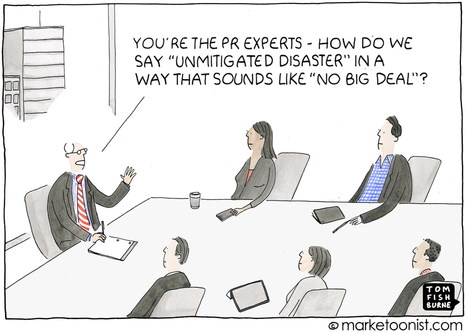


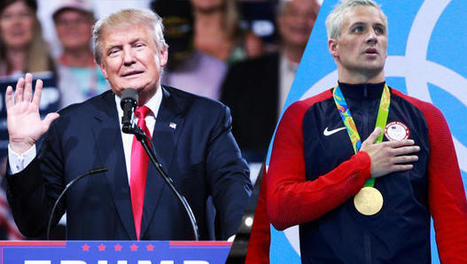
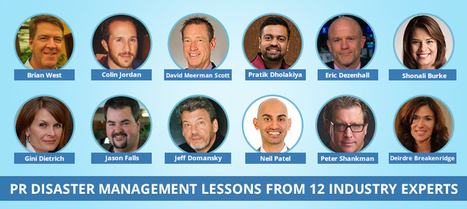





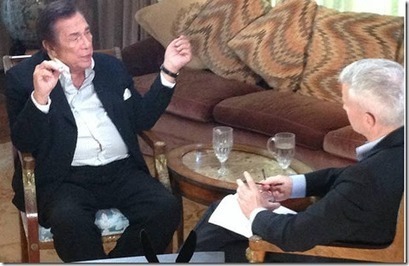
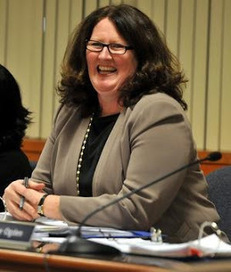


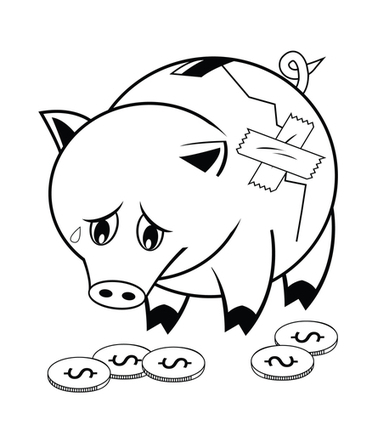
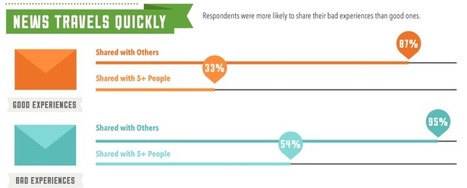

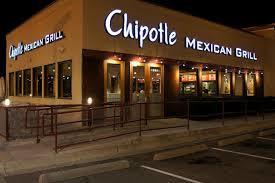



![[US] PR Firm for Putin’s Russia Now Walking a Fine Line | NY Times | Public Relations & Social Marketing Insight | Scoop.it](https://img.scoop.it/gIca6UV63vQonzUzWhv_ETl72eJkfbmt4t8yenImKBVvK0kTmF0xjctABnaLJIm9)

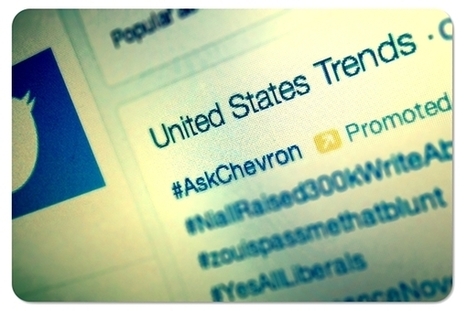
![Twitter, Amazon, NASDAQ, Target – 2013′s Biggest Digital Disasters [INFOGRAPHIC] - AllTwitter | Public Relations & Social Marketing Insight | Scoop.it](https://img.scoop.it/m-Tio9IQrMS7Ee9nI8vchTl72eJkfbmt4t8yenImKBVvK0kTmF0xjctABnaLJIm9)







Tom Fishburne's cartoon says it all. PR people need to give advice on how to close the gap between reality and crisis weasel words.